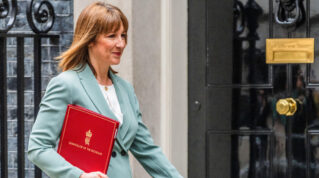Schools would be left in a “perilous and untenable” position if council plans to raid 11 per cent of their budgets to fill a £28.9 million high needs funding gap go ahead.
But Bournemouth, Christchurch and Poole (BCP) council said it would have to declare effective bankruptcy this year if its soaring dedicated schools grant (DSG) blackhole is not resolved.
It is one of five new councils in talks with the government over agreeing a “safety valve” bailout to help bring down their deficit – which is now expected to reach a cumulative £63.4 million by March this year.
Launched in 2021, the £1 billion programme sees 34 councils make sweeping reforms in exchange for government bailouts. However, they come with strict cost-saving measures attached.
But BCP said one of the proposals risks an “inability to deliver all aspects of the plan due to legality” – essentially meaning it would be forced to break its legal duties for provision relating to SEND children to cut costs.
The council has instead put forward its own plan to bring down the deficit over 15 years, as opposed to the usual five required by government.
Schools could be left in ‘perilous state’
One of the proposals includes the council transferring 11 per cent from its mainstream schools’ budgets into the high needs pot, which would require ministerial approval.
The figure could rise to 16 per cent in some schools and is due to be discussed by the council’s schools forum on Monday.
However, a spokesperson for the BCP primary headteachers group told Schools Week the proposals “are simply frightening”.
The transfer would leave schools “in a perilous and in some cases untenable position, with most requiring redundancies of key staff”.
They added this was “all at a time when being asked to support ever-increasing numbers of children with complex needs” and statutory education, health and care plans (EHCPs).
“Far from being a ‘safety valve’, it currently seems to headteachers that this proposal poses a serious risk to the short- and long-term future of BCP schools and to, most importantly, the young people they serve.”
Another proposal would include a “rapid” rebalancing of the deficit over five-years, but this would mean 90 per cent of new EHCPs for children with SEND had to be for mainstream schools, up from 70 per cent.
However, even the Department for Education’s SEND adviser agreed the plan was “unrealistic”, council documents state.
‘It confirms so many fears’
SEND campaigner Adam Sofianos, who attended the meeting last week, described it as a “disturbing insight” that “confirms so many fears about this project”.
A second “potentially deliverable but very challenging” plan would see the in-year deficit maintained at £27.5 million – but this would result in an accumulated deficit of £198 million by 2028–29.
Under this plan, the number of EHCPs issued each month would have to fall from 30 to 24 by 2030–31.
The council’s 15-year plan is based on this second scenario. But Cllr Richard Burton, BCP education lead, said this is “very unlikely to be acceptable” to the DfE, which is due to respond to the proposals this month.
BCP has been part of the delivering better value in SEND programme for the past year – a government scheme where councils with less severe deficits get expert support to make savings.
But a September council report said: “Consultants working with us have been unable to establish how an in-year balance of the high needs block can be achieved.”
The council, controlled by a Liberal Democrat-led alliance since May, has also warned when the so-called “statutory override” ends in March 2026, it may have to effectively declare bankruptcy.
Since 2020, the government has allowed DSG deficits to sit off council books.
Councils fear bankruptcy
Schools Week revealed last year that nearly a dozen councils would have had to issue section 114 notices if the override ended as planned in 2022.
Instead, it was extended until 2026. But a BCP council report stated it expects to issue a bankruptcy notice in December this year if the override is not extended again.
Bracknell Forest and Cheshire East, also in safety valve negotiations, have both said similar.
Last month, local government minister Simon Hoare told MPs his department, DfE and the Treasury are “working together to prepare for the end of the ring fence, to avoid jeopardising local authorities’ financial viability”.
But he added “some local authorities can and should be doing more to manage their systems well and sustainably”.
‘A sword of Damocles’ over schools
Sir David Davis, the veteran Conservative MP, warned the Commons yesterday that, when the override expires, “many councils will be bankrupted overnight, with huge implications not just for education but for all local services”.

He said the f40 council group said it is “a sword of Damocles hanging over the entire sector”.
Cllr Alex Dale, f40 spokesperson, called for the override to be extended, followed by extra funding and resources.
Labour’s shadow education secretary Bridget Phillipson told Schools Week they have “an election to win before they can take any decision”.
“I think we do need to look afresh at the whole landscape and make sure that children with SEND are getting the support that they need.”
A DfE spokesperson said they are supporting councils “to effectively and sustainably manage their high needs systems”.
Devon and Wiltshire are also in ‘safety valve’ talks.
















Your thoughts